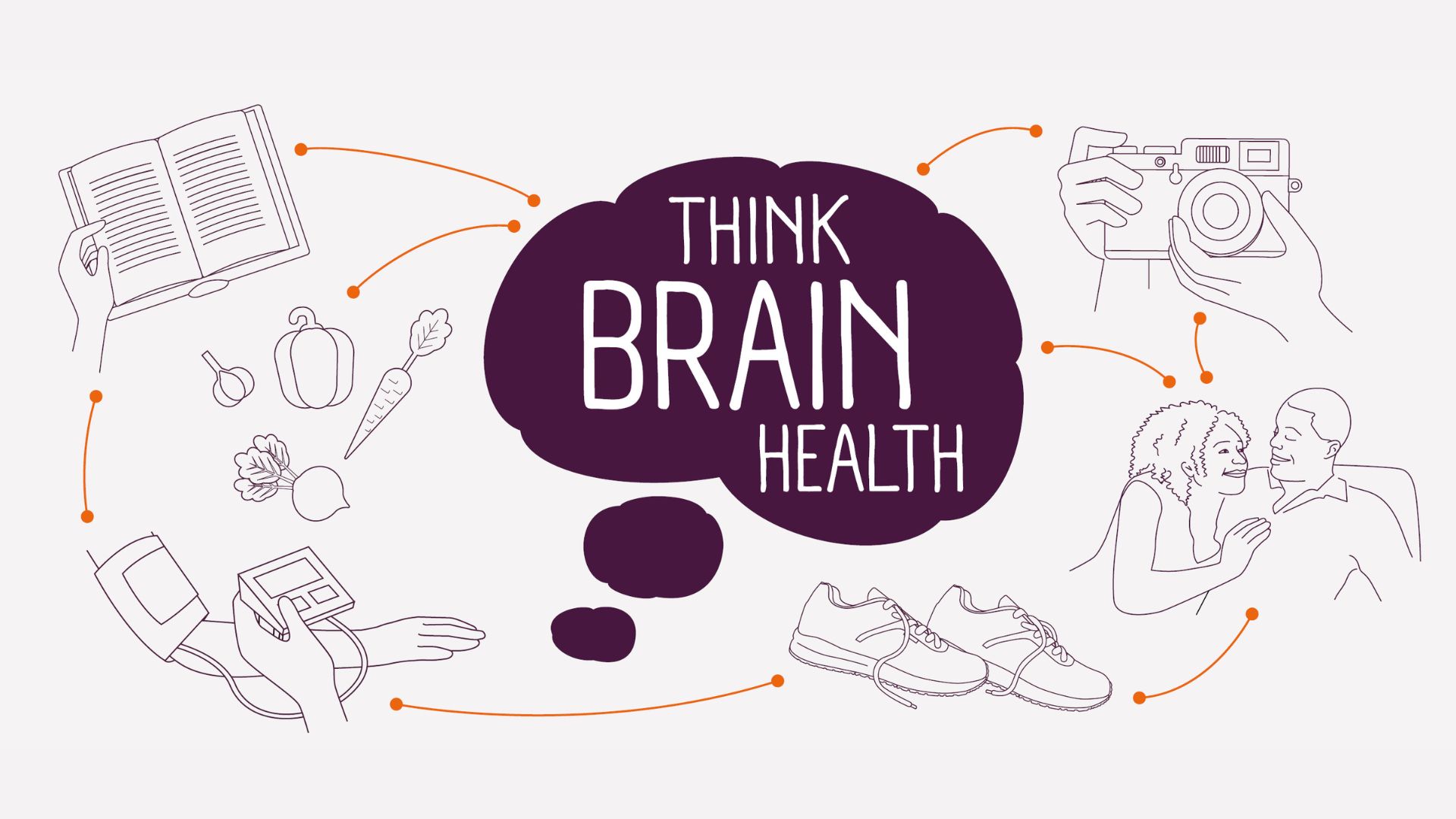How to look after your brain health in five simple ways every day
Looking after your brain may sound complicated, but it can be as easy as eating well and getting some exercise

Our brains do a lot for us, whirring away without us even noticing. They’re the control room of the body, and like any other part of the body, we can take steps to look after them.
According to a recent review of the scientific evidence, up to 40% of dementia cases are linked to risk factors we can influence in some way, such as physical inactivity, high alcohol consumption and low social contact. But worryingly, according to a study by Alzheimer’s Research UK in 2021, only 1 in 3 of UK adults are aware that we can do anything to reduce our risk.
Although looking after our brain may sound complicated, it doesn’t have to be. So here are five simple ways to build looking after your brain health into your everyday routine. Chances are, you’re already doing some of them!
How to look after your brain health
1. Exercise regularly
We know that keeping active, no matter the method, is key to preventing so many adverse health conditions - including those affecting the brain. For example, the risk of developing conditions such as dementia, heart disease, type 2 diabetes, and high blood pressure can be significantly reduced with a regular healthy exercise routine. For middle-aged adults specifically, researchers have linked regular physical activity with a lower risk of dementia.
There's evidence suggesting that the more physically active we are, the greater the benefits for our brain health, and even that taking up exercise in your 60s can be beneficial.
But there’s no need to start training for a marathon. Staying active looks different for everyone and consistency is key, so find an activity you actually enjoy and will therefore do regularly - whether that’s dancing in front of the television, going out for a bike ride, or taking a walk with friends out in nature.
2. Eat a balanced diet
Much like exercise, getting our five a day and a good amount of nutrients such as protein, fibre, and carbohydrates, can go a long way to looking after our brain health. According to the NHS Eat Well Guide, having a balanced diet means prioritising starchy carbohydrates like brown rice and potatoes, protein sources such as fish, lean meats and vegan alternatives, fibre from vegetables like broccoli, beetroot, and carrots, and healthy fats from avocados, nuts, and seeds.
Evidence suggests that the Mediterranean diet - a way of eating typically seen in countries like Italy, Spain, and France closely resembles a balanced diet.
Luckily, switching up the way you eat for better brain health is easy to do. In your grocery shop, you could swap white bread and pasta for wholegrain or wholemeal alternatives, buy some sunflower or pumpkin seeds to sprinkle onto your morning porridge, and switch your red meats for white meats like chicken and turkey.
3. Stay connected with loved ones
Keeping in touch with your family and friends has more benefits than you might think. While we all enjoy spending time with loved ones, research shows that social isolation is linked to increased dementia risk, so staying connected is another brilliant way to give back to your brain.
However, staying connected with friends and family can sometimes be tricky in this busy world, so why not schedule calls or virtual catch-ups with friends further afield too?
4. Keep your brain stimulated
Just like how spending quality time with others can help to keep our brains healthy, spending time doing activities that you enjoy and find mentally stimulating can have a physical effect on your brain health.
Important research reveals that regularly challenging your brain can help build something called ‘cognitive reserve’. This is a sort of resilience that can help keep your brain working properly, even in the face of diseases that affect the brain, such as Alzheimer’s.
There’s no single activity that’s proven to be best for our brains just yet, so again, if you’re thinking of trying something new, pick something you’ll want to do regularly. Activities like painting, learning a new language, or simply completing puzzles are all great places to start.

5. Seek personalised help
There’s no sure-fire way to prevent dementia yet, as our risk is shaped by a combination of factors including our age, genetics, and environment. But evidence shows there are steps we can all take to help protect our brain health.
The Think Brain Health Check-In is a new digital tool from Alzheimer’s Research UK, the UK’s leading dementia research charity. In just 10 minutes, you can get a clearer picture of what you’re doing well and any areas you may want to focus on. It’s not an assessment or a test for dementia, but rather a way to find personalised brain health tips that work for you.
Sign up to our free daily email for the latest royal and entertainment news, interesting opinion, expert advice on styling and beauty trends, and no-nonsense guides to the health and wellness questions you want answered.
-
 Vanessa Williams’ technicolour co-ord has to be the most joyful look from Wimbledon this year
Vanessa Williams’ technicolour co-ord has to be the most joyful look from Wimbledon this yearShe wore two Kate Middleton-approved brands as she headed to Centre Court
-
 No, you don’t need a 12-step skincare routine - here’s what you can afford to skip, according to beauty experts
No, you don’t need a 12-step skincare routine - here’s what you can afford to skip, according to beauty expertsTurns out a less-is-more approach could unlock the best skin of your life